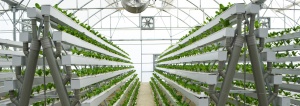Hydroponics gardening may seem a bit strange or complicated, but it does wok. In some situations, it’s far more realistic than conventional gardening as it needs very little space & other sources to produce unbelievable results.
Hydroponics isn’t a new system. It has been there since nearly the starting of the recorded history. Today hydroponics is employed in an assortment of settings. Anywhere soil is not available; Hydroponics farming seems to emerge.
Many scientists consider hydroponics a big part of the prospective solutions required for meeting the increasing demands of food in our starving world. Hydroponics offers a practical option in regions where climate difficulties, limited resources and pool soil make conventional gardening & planting tough. By reducing the requirement for insufficient water & increasing the plant output, it may be probable to put a considerable impact in world hunger, enabling for food production in areas that are presently unable to do so in adequate quantity.
Along with water preservation, there’re additional environmental advantages. Hydroponics stops the exhaustion of precious nutrients and minerals in soil. The effectiveness of the hydroponic method allows you to obtain more food with fewer outflows of organic resources.
Hydroponics makes uses of less than half of the water generally needed for plant growth and gives as much as four-hundred percent yield increase. Those 2 facts make the system of hydroponic farming particularly interesting to those troubled with world famine.
For the home gardeners, hydroponic is also the ideal solution for fresh & cheap vegetables, particularly when there’s a scarcity of soil or space, or the temperatures outside are intense. Before you get started with your hydroponic gardening, decision will require to be made on which kind of system is appropriate for each condition. Requirements can often differ.
Along with the different systems, nutrient solutions, growing mediums, sufficient lighting, and adequate PH balance for your solution, it’s also essential to understand that each hydroponic system requires air. In the future, hydroponic farming or gardening may assist the world-wide over use of insecticides and also scarcity of land and the most valuable resource, water!





